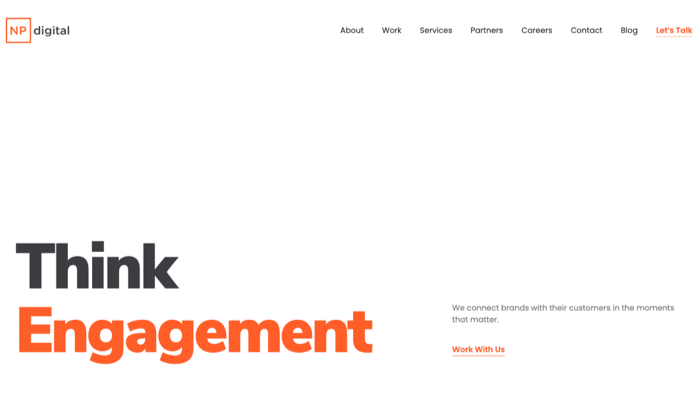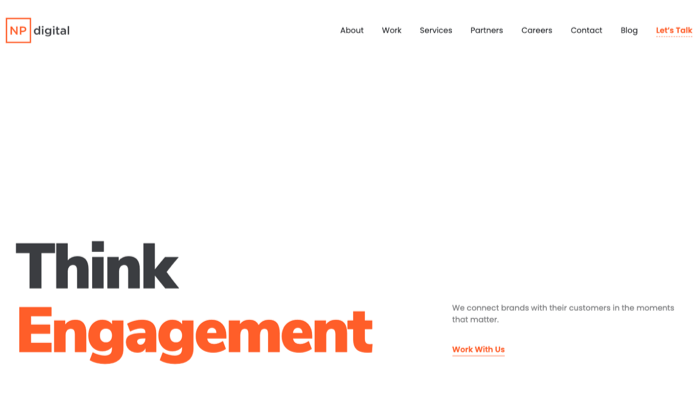
In our modern digitally enhanced world, data and information underpin all of our activities.
But are you making your data work for you, or is it something that you are yet to take full advantage of?
For many business owners and marketers, analyzing and deploying data can be an intimidating prospect.
For that reason, analytics agencies have emerged, whose aim is to help businesses leverage their data for better decision making and improved outcomes.
If you are thinking about hiring an analytics agency, here is everything you need to know.
Know Your Goals and Desired Outcomes
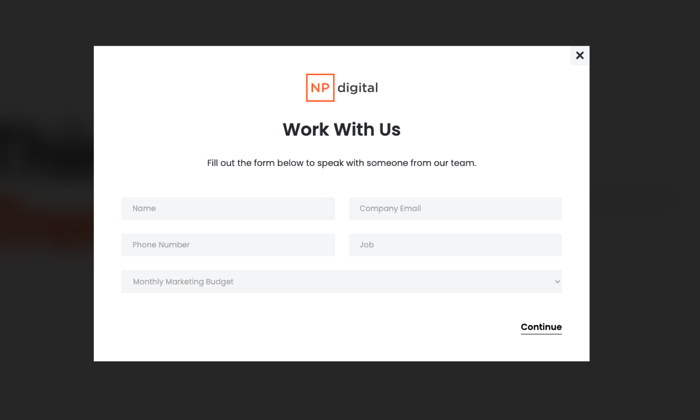
Like when working with any agency partner, you first need to consider your current situation and goals.
The reason for this is that not every analytics agency is built in the same way.
Some agencies work with certain industries or companies at different stages of maturity.
Other agencies specialize in certain areas of analytics such as marketing vs operations.
There are also differences in how they execute. For instance, one agency may rely heavily on technology to power their insights. Whereas another may rely more on their years of experience and human intuition.
When thinking about your goals, consider these aspects:
Your existing data – Think about the data assets that you are currently building. This can include things like marketing channels (search, PPC, content), operations or product data. The role of data in your business – Next, you will need to think about the role that data plays in your business. For instance, do you need to use data to predict and manage your inventory? Or perhaps you may need to leverage data to scale an existing marketing channel. Your budget – Naturally, there is a varying service fee depending on which agency you work with. Depending on what you want to achieve, you need to think about how much budget you can allocate to an analytics service. Business priorities – Ultimately, you will need to think about what is a priority for your business at the moment. This is where you should spend most of your time thinking and see how data and analytics syncs up with your main priority. Maybe you need to optimize your processes to reduce costs. Or perhaps you need to discover new market segments by leveraging customer data.
Before rushing into hiring an analytics agency, take the time to conduct a full audit of where you are today and where you want to be, while being conscious of how leveraging data can help you get there.
6 Characteristics That Make a Great Analytics Agency
Choosing the right analytics agency can be tricky if you don’t know much about analytics yourself.
In addition to a partner that can provide all the technical fundamentals of analytics, you will need someone who guides you and helps you make sense of what’s going on with your data.
And in the ideal case, a partner that can help take over the execution of your new data-informed strategy, particularly when it comes to the marketing aspect.
When evaluating an analytics agency, make sure that you vet for these characteristics.
Thought Leadership
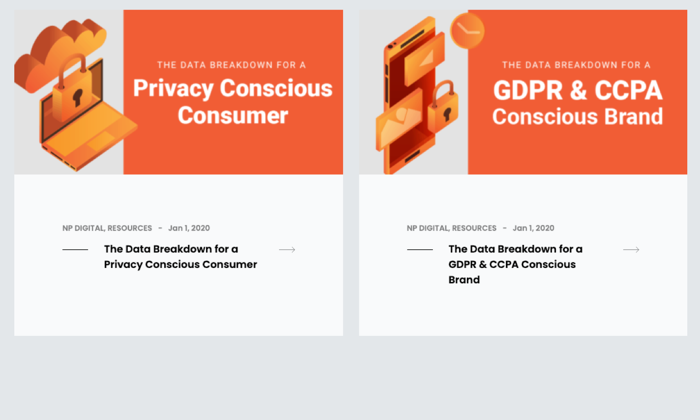
Thought leadership describes the esteem and authority a company is held in in a particular industry.
This position is typically achieved by that company producing content that educates, solves industry problems and demonstrates superior expertise.
Take a look at the type of content that a given analytics agency is producing.
Are they even creating content at all?
Is the content insightful and communicated in a clear and concise manner (this also affects how they will communicate with you)?
An analytics agency that is producing good thought leadership content also signifies whether that company is on top of the latest trends, which is needed in fast-evolving fields.
Powerful Technology
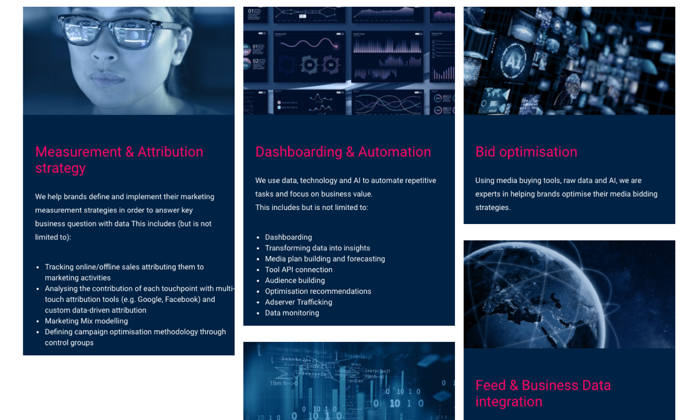
Your analytics agency partner will need to have the appropriate technologies built that can help you aggregate and make sense of your data.
Their technology will need to be able to integrate with your data sources such as Google Analytics or Shopify, depending on the platforms that you use.
They should also have a platform that allows you to view and make sense of this data in a way that provides an intuitive user experience – such as the ability to visualize data with graphs or easily download reports.
In an ideal case, your analytics agency will have more advanced technology such as machine learning algorithms which can crunch and manipulate data for deeper analysis.
A Well-rounded Team
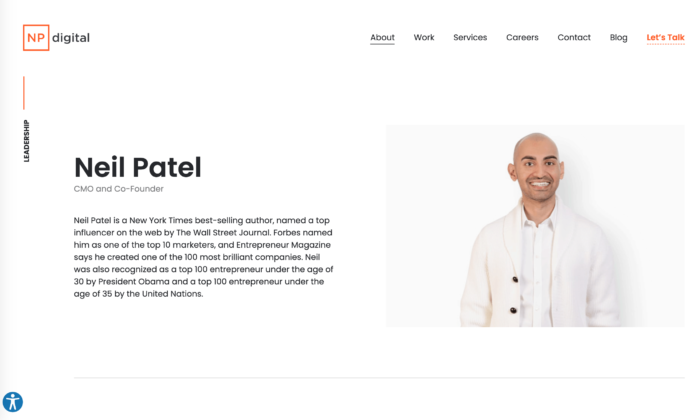
Analytics sits at the intersection between the world of numbers and the world of words.
There’s no point in collecting data if you can’t turn that data into actionable insights and strategy.
For that reason, the analytics agency that you work with will need to have a diverse set of team members who are both analytical but also creative.
This could include team members such as data scientists, psychologists, and digital marketers.
Bonus points for analytic agencies that have strong founders, as the insight and disposition of the founder is often imprinted onto the companies culture – affecting how they think and execute.
A Solid Client List
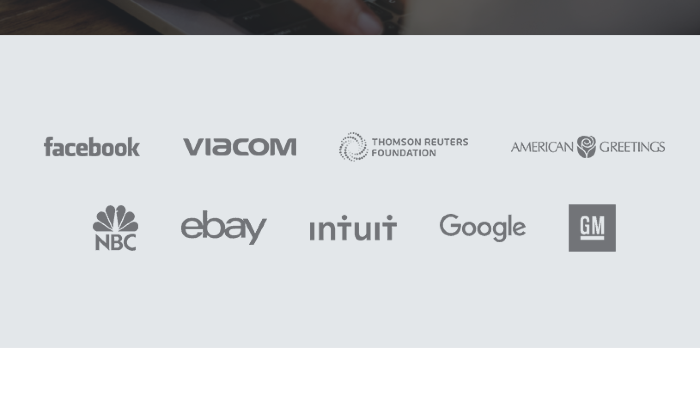
Sometimes, you can gauge the value of a company simply by looking at who they’ve worked with in the past.
If the analytics agency you are considering has an impressive track record of working with big names such Google or Intuit, then chances are that they know their stuff.
One caveat though: even if the agency has worked with impressive brand names, it doesn’t mean that they will necessarily be the right fit for you.
For a start, you may not even be able to afford their fees. And even if you could, they may be more optimized to working with bigger clients or clients with different needs.
So consider also the relevance of their client list in relation to your particular situation.
Clear Communication
If you are working with an analytics agency, you want a partner that can explain to you the story behind your data.
The first way they need to do this is through their technology, which should allow you to visualize your data through graphs, charts, and other meaningful ways.
The second way they should do this is through how they communicate actionable insights through storytelling, and ideally strategy creation.
Remember that although data is objective, it doesn’t guarantee that the interpretation of that data will be objective too.
For that reason, your partner should always have a strong, clearly communicated, and logical case for their analysis. This way, you can know that you are making informed decisions.
Syncing With Your Team
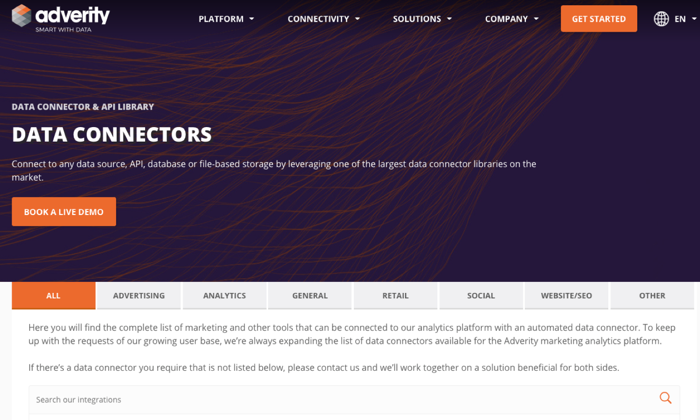
Working with an analytics agency requires synchronization between both your technology and your teams.
Your development team will need to be able to easily integrate and set up with your partners.
Your marketing team will need to feel confident and informed enough to adapt their strategies based on the insights your partners are providing.
To work successfully with an analytics agency, both your teams need to be on the same wavelength. Strategy, expectations, and skill sets need to be well aligned to get the best results.
How to Work With an Analytics Agency
Each analytics agency that you work with will have a slightly different process. In general however, there is an overriding structure that will be the same from company to company.
In order to reach a successful outcome when working with an analytics agency, you should typically go through these steps.
1) Share your goals – Your agency partner should have a complete understanding of your goals including services, timeline and results. You will need to be as transparent as possible at the start of your relationship to ensure that you both have the appropriate expectations going forward. For instance, if you will actually need help with the marketing execution but you’ve partnered with a tech focused agency, there will likely be an issue later on.
2) Manage expectations – It’s important to also manage clear expectations about what’s possible early on. Some agencies offer a variety of additional services such as helping with strategy or machine generated analytics. Others may just offer a simple dashboard. It’s also important to understand the role of analytics in general and what it’s uses and limitations are.
3) Map out your assets – Your data assets represent the existing ways that you are collecting and storing data across your business. You will need to map out all your existing assets such as marketing channels (Google Analytics, etc), operations (inventory management, etc) and technology. These will then be used by your analytics agency for integration and analysis.
4) Integration – With your assets in place, you will then need to integrate them with your analytics partner. In the best case, your partner will have their own platform and will work with your development team to connect your data assets. If you are working with a smaller agency however, they may choose to access your data directly, in which case you would need to provide them the login credentials to the software you use.
5) Reporting – Once everything has been connected, your analytics agency will begin conducting an audit of your existing data assets. If they have a platform, you will be able to access and view all of your data in one place. The best agencies will allow you to view and manipulate your data in a user friendly way through graphs, charts and reports. They may also have machine learning technology that makes sense of your data without any human input.
6) Analysis – With technology, the human eye or a combination of both, your analytics agency will help you make sense of your data by telling you the story behind the numbers. They should then help you produce actionable insights which will inform your strategy going forward.
7) Strategy – With your existing data fully analyzed, you will then need to update your strategy, depending on the insights produced. For instance, you may choose to double down on a particular sales channel, or realise that you need to remove a bottleneck in your operations.
8) Execution – Some analytics agencies offer services beyond analytics, such as marketing execution. Your data may signify that you lack the necessary human capital to generate results with your existing or new strategy. Here, your agency partner may be able to help by taking over the reigns of wherever you are coming up short.
9) Monitoring – On an ongoing basis, your agency partner will work with you to ensure that your data, strategy and execution are all synced up. You should be having analysis and strategy meetings with them at least once a month, but also be able to access your data and any computer generated insights on demand.
How to Find The Right Analytics Agency For You
Finding the right analytics agency requires that you look out for and vet certain things. We have spoken about some characteristics to look out for here and what to expect when working with an analytics partner.
Here is a quick summary of the things to look for when finding the best analytics agency (LINK HERE):
Characteristics:
Full stack marketers – When analyzing your marketing data, it helps a lot if your analytics agency are marketers themselves. That way, they can help turn your data into strategies that actually get results.Strong technology – An analytics platform is the bare minimum your agency partner should have. If they have machine learning and data crunching algorithms, even better. An all star team – Your analytics agency needs to have a diverse set of team members that understand both numbers and marketing psychology. A strong founding team is also something to look out for. A strong client roster – Agencies that have worked with big brands is always a good sign. But when inquiring, try to find out if they have worked with brands similar to yours in terms of size and industry. A great communication style – Making sense of data is one thing, but explaining it in a clear and concise manner is something else. An analytics agency that can storytell in a meaningful way will help you put your data to use. They take a holistic approach – There are numerous sources of data that you are probably collecting. The more sources of data they can integrate and analyze the better.
What to expect:
Onboarding and integration – The first thing your agency partner should do is onboard you to their platform and talk you through the process. This will include things like syncing up your technology and managing expectations in terms of outcomes.Auditing of assets – Next, they will need to do an audit of your existing data assets and come up with actionable insights which will turn into strategy and then execution.Setting up marketing channels – If your analytics agency offers services beyond analytics, they will work with you to execute your marketing strategy, including channels such as SEO, PPC and social media.Data management – On a continuous basis, you will be able to access and view your data through your agency partner. You will be able to download reports and visualize your data. Actionable insights and results – The best analytics agencies really stand out when it comes to translating your data into insights, strategy and execution. You should work with your agency to ensure that your data is informing decision making and driving results.
The Top 3 Analytic Agencies
There are hundreds of good analytic companies out there that serve all types of needs.
It is unlikely however that you have the time to go through and vet them all, so we’ve filtered down the top 3 analytic agencies, based on the various criteria we’ve discussed in this article.
The top 3 agencies listed here have different strengths and weaknesses, so you will have to decide which is the best fit for you.
1) NP Digital — Best For Marketing Execution

If you think that you will need helping putting the insights from your data into practice, then you should work with NP Digital. The agency was founded by Neil Patel, one of the most influential digital marketers in the world. And in addition to the analytics services they provide, they can also help you set up and execute a results driven marketing strategy. They have worked with big brand names including companies such as Google and Intuit.
2) Artefact — Best For Technology
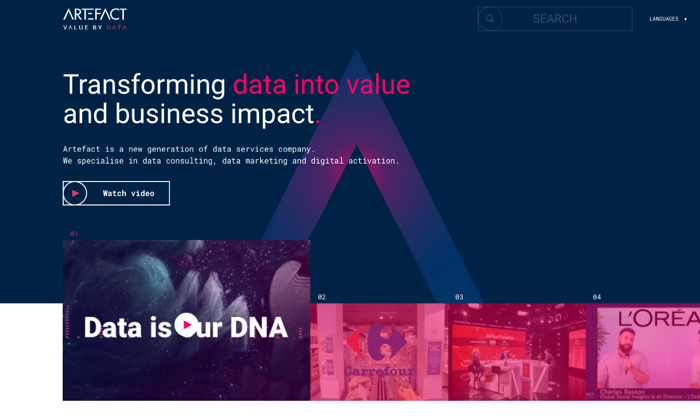
Perhaps you are in an industry where you have a ton of data to analyze, or data plays a critical role in your ability to compete in the market. In this case, you should consider Artefact, an agency that has a robust technology stack which leverages artificial intelligence to really get the most out of your data. They have a strong and diverse team, ranging from social scientists to statisticians, and have worked with companies such as Greenpeace and Carrefour.
3) Adverity — Best For Smaller Businesses
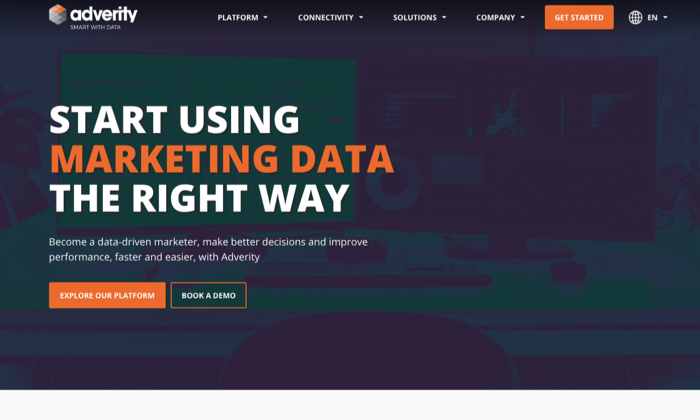
For smaller businesses who may not be able to afford high end agency fees, Adverity may be a better match. Although Adverity is more of a technology platform than an agency partner, you will be able to amplify your analytics strategy at a fraction of the cost. The platform allows you to integrate data sources from operations to marketing. The drawback of course is that you don’t have the human level insight and execution that consultative agencies provide. Adverity currently has a 4.5/5 star rating with over 100 reviews on the G2 website.
Conclusion
At this point, you should have a good idea of how to choose an analytics agency.
Keep in mind that everything written is from our perspective, and there may be other things you should consider when evaluating an agency.
Before you finally pull the trigger and sign any contract, make sure that the analytics agency you want to work with has worked with companies similar to yours and that they can demonstrate some results.
The post How to Choose The Right Analytics Agency appeared first on Neil Patel.
Read more: neilpatel.com
